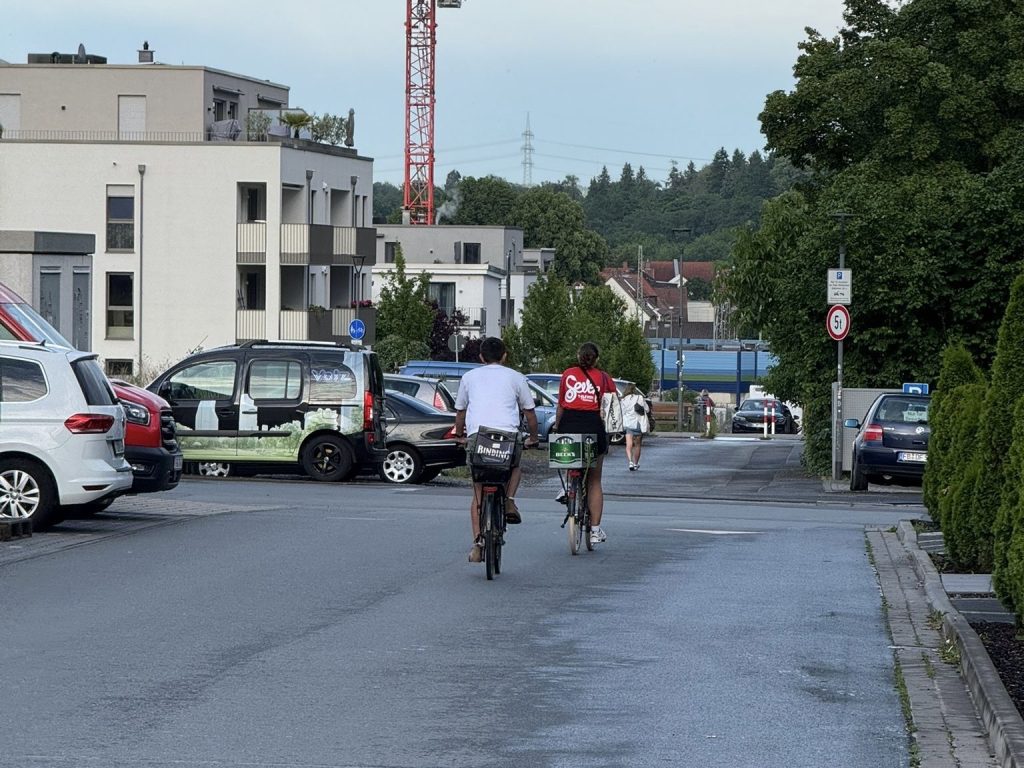
It’s official – Jess and I have moved into our new apartment in Frankfurt, Germany. After nine months in temporary housing in the nearby town of Bad Vilbel, we’ve managed to secure a bright and recently renovated 1-bedroom apartment in the leafy district of Dornbusch. The new apartment is fifteen minutes by bicycle from the city centre (only ten minutes to the university) and is surrounded by quiet residential blocks, old-growth trees, and plenty of grocery stores and transport links (mostly metro, or “U-Bahn”, and busses). We’re thrilled, to put it simply.
Anyone who’s moved to a major European city will tell you that finding rental housing is no picnic, and Frankfurt was no exception. While easier (and cheaper) than cities like Amsterdam or Berlin, apartment hunting in large German cities usually takes several months, costs quite a bit, and will almost inevitably leave you paying a month or two of double rent due to frustrating contract overlaps. Thankfully we got quite lucky in the end, making contact with a brilliant landlord who eventually offered us a wonderful partially-furnished apartment at a fair price.
For those of you contemplating renting your first apartment in Germany, the experience usually goes something like this: First, you need to pay for the premium subscription to a property app like ImmoScout. You simply won’t be taken seriously by without it. Second, prepare an incredibly detailed (and costly) application packet with which the goal is to sell yourself to landlords. I think being a young, newly married couple might’ve helped us out here. Third, apply to hundreds of apartments within minutes of them going live on the app. What follows will be a handful of viewing invitations, followed by one or two serious offers.
In our case, divine intervention seems to the only explanation for our luck and success. Not only did we make contact with a landlord offering a great property (due to Frankfurt’s post-war building boom accounting for a large share of the current housing stock, many reasonably priced apartments are quite shabby), but they also delayed our viewing and waited for us to return from honeymoon rather than immediately passing the offer on to some other hopeful. This is unheard of among German landlords, a group who, because the current property market is so tight, have the privilege of choosing between hundreds of potential tenants at their pleasure.
Divine intervention or not, we’ve finally established our foothold in Germany. And after a hectic weekend of moving, IKEA shopping, and navigating a confusion of utility suppliers (whoever heard of an Internet connection taking two weeks to be connected?!), things are coming together quite nicely. While certainly not perfect, I think the levels of cosiness are suitably high for the moment. Next on the household to-do list is to add some more storage to the kitchen, outfit our balcony with chairs and plenty of plants, and decorate the walls with photos and illustrations of family and friends, the wedding, and our travels.
Given its location, size, and reasonable price point (aided by the German Kappungsgrenze, which caps rental increases at 20% over three years), it’s likely we’ll stick with this apartment for at least the next 2-3 years, perhaps longer. We don’t really need more space than this current configuration provides (bedroom, living room, kitchen, bathroom, balcony, and cellar) and I’d rather shift extra income towards long-term investments than see it spent on a more expensive apartment elsewhere in the city. And unless we move to Berlin (another vibrant international city in Germany), I can’t see us moving out of Frankfurt anytime soon. Dornbusch it is.
Having accomplished one of our big goals for 2025, what’s next? Continue building Beagle & Baobab by refining our product-market fit, growing my network of South African partners, and finding those magical First Ten clients. Finish up a second semester of my Master’s degree, as well as continue contributing to the European i4i Project. We’ll also soon begin intensive German classes, and start the process of registering Jess’s and my marriage in Germany and transitioning to a spousal residence permit. And to round it all off, keep training for the upcoming 3-Länder half marathon.
Until next time.